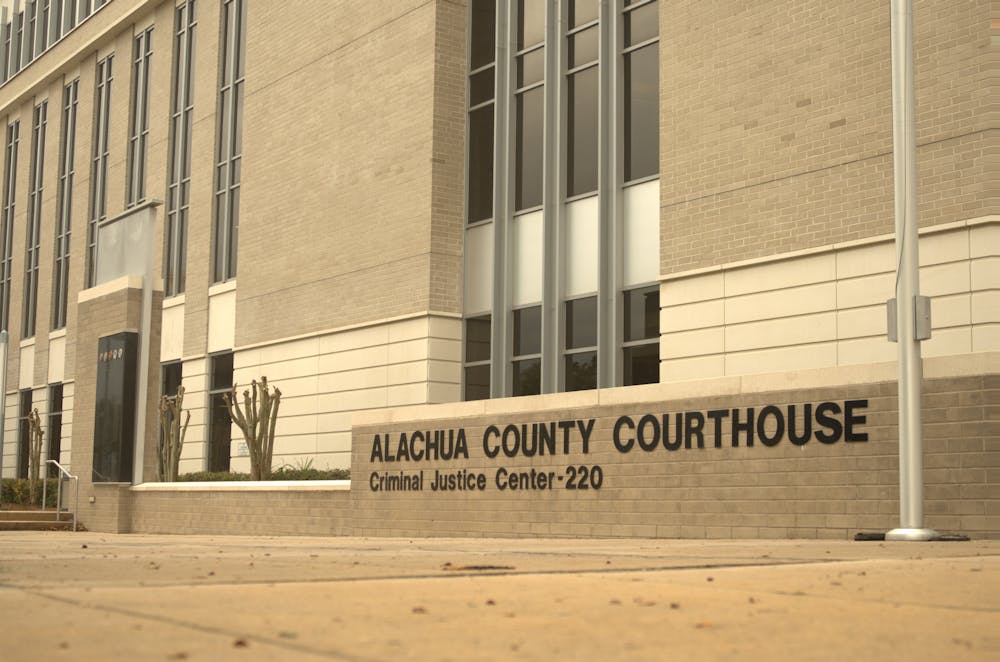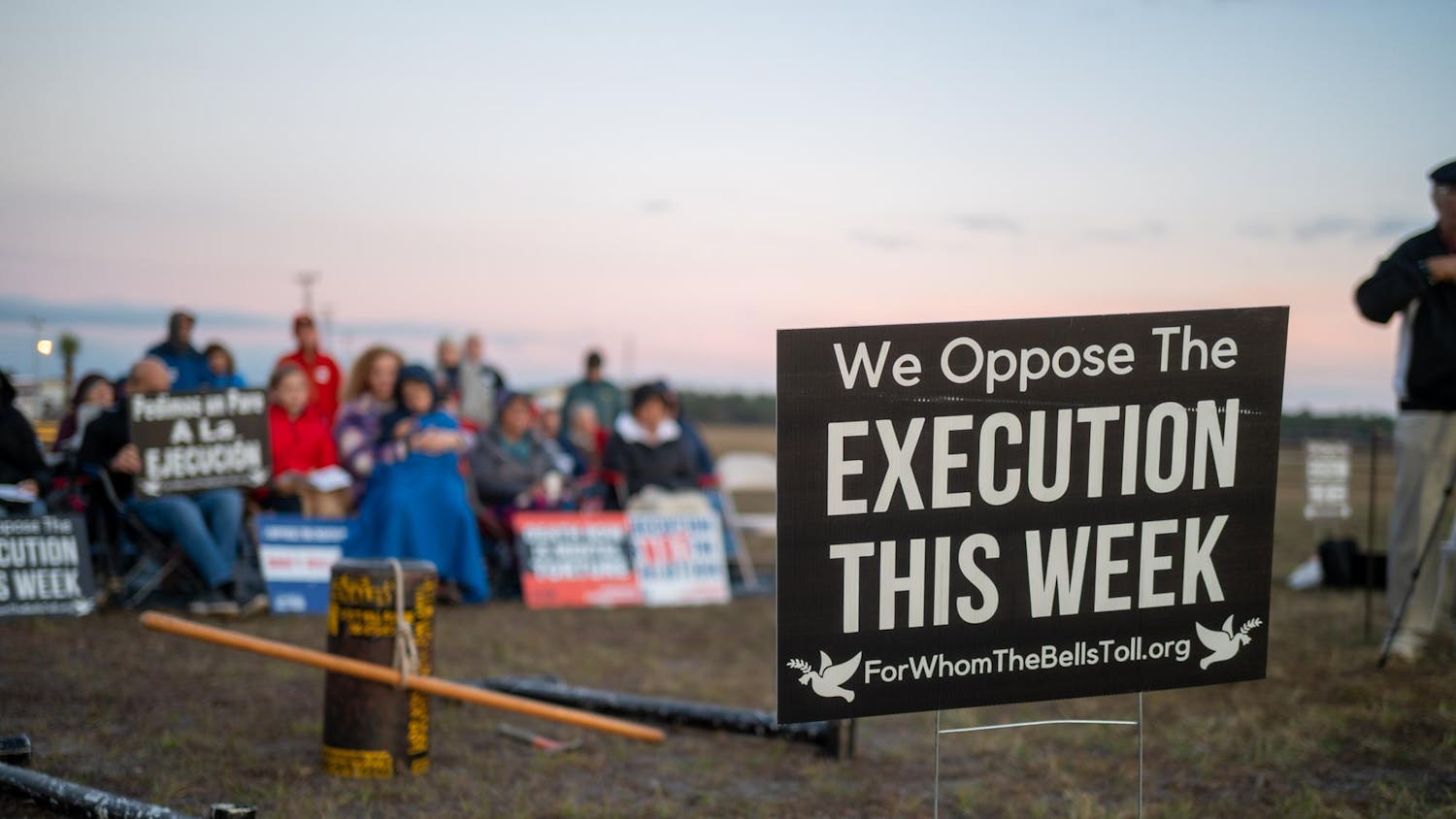With the arrival of the new year, several laws passed during 2023’s legislative session are now taking effect and have the potential to drastically alter the criminal justice system in Florida.
Gov. Ron DeSantis signed three new criminal justice bills during the legislative session that modify pretrial detention, tighten penalties for those accused of child sexual abuse and lower the threshold to apply the death penalty.
These bills, characterized as “tough-on-crime,” were praised in a May 2023 release by DeSantis for “keeping criminals in jail and throwing the book at pedophiles.”
Notably, one law directly challenges existing Supreme Court precedent by expanding the applicability of the death penalty beyond murder to include those convicted of child rape.
New bail requirements
House Bill 1627, which took effect Jan. 1, directs the Florida Supreme Court to establish uniform bond recommendations that apply throughout the state.
Previously, each of Florida’s twenty judicial circuits retained discretion to determine bail amounts. Under the new law, lower court judges cannot reduce bail under the Supreme Court guidelines; they can only increase it.
DeSantis believes this section of the bill should “prevent some very pro-criminal judges from releasing people back onto the street who should not be released,” he said in a May 2023 Titusville, Florida, conference.
However, many critics take issue with eliminating a judge’s discretion to lower bail according to the specific facts of a case.
“These judges have intimate knowledge of the specific facts and circumstances of individuals’ cases, and in certain situations, it is greatly beneficial to pursue bail reduction,” Sebastian Smith, president of the Florida Undergraduate Law Review, said.
Critics also claim additional barriers to pretrial release will only serve to hurt the local community by preventing arrestees with strong community ties from continuing to get involved.
“To prevent lower courts from lowering bail amounts can, therefore, deprive the community of valuable activity,” Smith said.
The law also takes aim at new bail reform policies enacted in states like New York and Illinois, which among other provisions, eliminated cash bail.
In a bill-signing ceremony in Titusville, DeSantis said, “What that means is you’ll have somebody commit a criminal offense, they’ll come in to face charges and then they automatically get released back onto the street without having to post any type of a bond.”
Chief Judge Nushin Sayfie of the 11th Judicial Circuit echoed this sentiment in a statement. “The most significant shortcoming of the current system: persons charged with violent crimes can bond out of jail by paying the standard bond — without first seeing a judge,” he wrote.
To address these concerns, the bill blocks repeat offenders and those arrested for specific felonies from seeking pretrial release prior to seeing a judge for arraignment.
Not all agree with these changes. The new law “poses disastrous consequences, denying justice to marginalized communities unable to afford bail,” Smith said.
According to a bill analysis by the House Judiciary Committee, the law might also place an especially heavy burden on the state court system.
The new hearing requirements may increase the workload for state employees and quickly fill local jails as defendants await their mandatory appearances. Despite these findings, Alachua County Sheriff’s Office Spokesperson Arthur Forgey said the law “will have no impact on our operation of the Department of the Jail.”
Expanding crimes covered under the death penalty
Another law, which went into effect last October, allows application of the death penalty for those convicted of sexually battering children under age 12. Although in direct contradiction with a 2008 Supreme Court ruling, the bill attracted wide bipartisan support in the legislature.
“We really believe that part of a just society is to have appropriate punishment,” DeSantis said at a 2023 press conference. “If you commit a crime that is really, really heinous, you should have the ultimate punishment.”
In central Florida, State Attorney Bill Gladson announced in mid-December he will be the first prosecutor to seek the death penalty in a child sexual battery case under the new law, which will likely be appealed to the Supreme Court.
In a post on social media platform X, formerly known as Twitter, DeSantis said the state attorney “has my full support.”
So far, Gainesville State Attorney Brian Kramer hasn’t sought the death penalty for such a case.
The bill text explicitly mentions its inherently illegal nature by stating, “A sentence of death shall be imposed under this section notwithstanding existing case law which holds such a sentence is unconstitutional under the Florida Constitution and the United States Constitution.”
Many believe the current composition of the Supreme Court may provide an avenue for upholding the new law as constitutional despite the 2008 decision.
Lowering the threshold for death sentences
In yet another change to the criminal justice landscape, Senate Bill 450 lowered the threshold required to sentence offenders to death from a unanimous jury verdict to only eight out of 12.
The new change makes Florida the harshest state in the nation with regard to capital punishment, a move DeSantis said during a bill-signing ceremony, “will prevent families from having to endure what the Parkland families have and ensure proper justice will be served in the state of Florida.”
A report from the Death Penalty Information Center released Jan. 3 describes the new law as creating chaos across the Florida judicial system, as attorneys and judges determine how to handle cases that began before the non-unanimity law took effect. The law has been interpreted differently across jurisdictions.
In Volusia County, a local judge ruled only eight jurors must vote for a death sentence in a trial that was already underway when the bill was signed into law. In Polk County, a judge ruled the law didn’t apply retroactively, and ongoing cases must continue using the unanimous standard.
Florida is already second in the nation for the number of executions carried out last year. Critics worry the new law will result in a rapid rise of death sentences, and not all of those sentenced may be guilty. Florida, with 30 people, leads the nation for having the highest number of exonerated death-row inmates.
Melanie Kalmanson, a member of the ABA Death Penalty Representation Project Steering Committee, said, “With this new legislation, Florida runs the haunting risk of sentencing more innocent people to death. In addition, the state will impose sentences of death that are almost certainly unconstitutional.”
Smith, president of the Florida Undergraduate Law Review, believes the law will do more harm than good.
“Wrongful executions are unrecoverable stains on the American justice system, explicitly violating the essential promise of ‘liberty and justice for all,’” Smith said.
It remains to be seen whether the law will actually cause a sharp increase in the number of death-row prisoners. Florida State Prison in Starke, the state’s only prison with an execution chamber and death-row cell block, is just a 45-minute drive from Gainesville.
Contact Daniel Bednar at dbednar@alligator.org. Follow him on X @Danielbednar5.
Daniel Bednar is the City & County Commission reporter and a second-year political science major. He previously worked as the crime reporter. When he's not writing, you can find him driving a motorcycle or flying an airplane.






